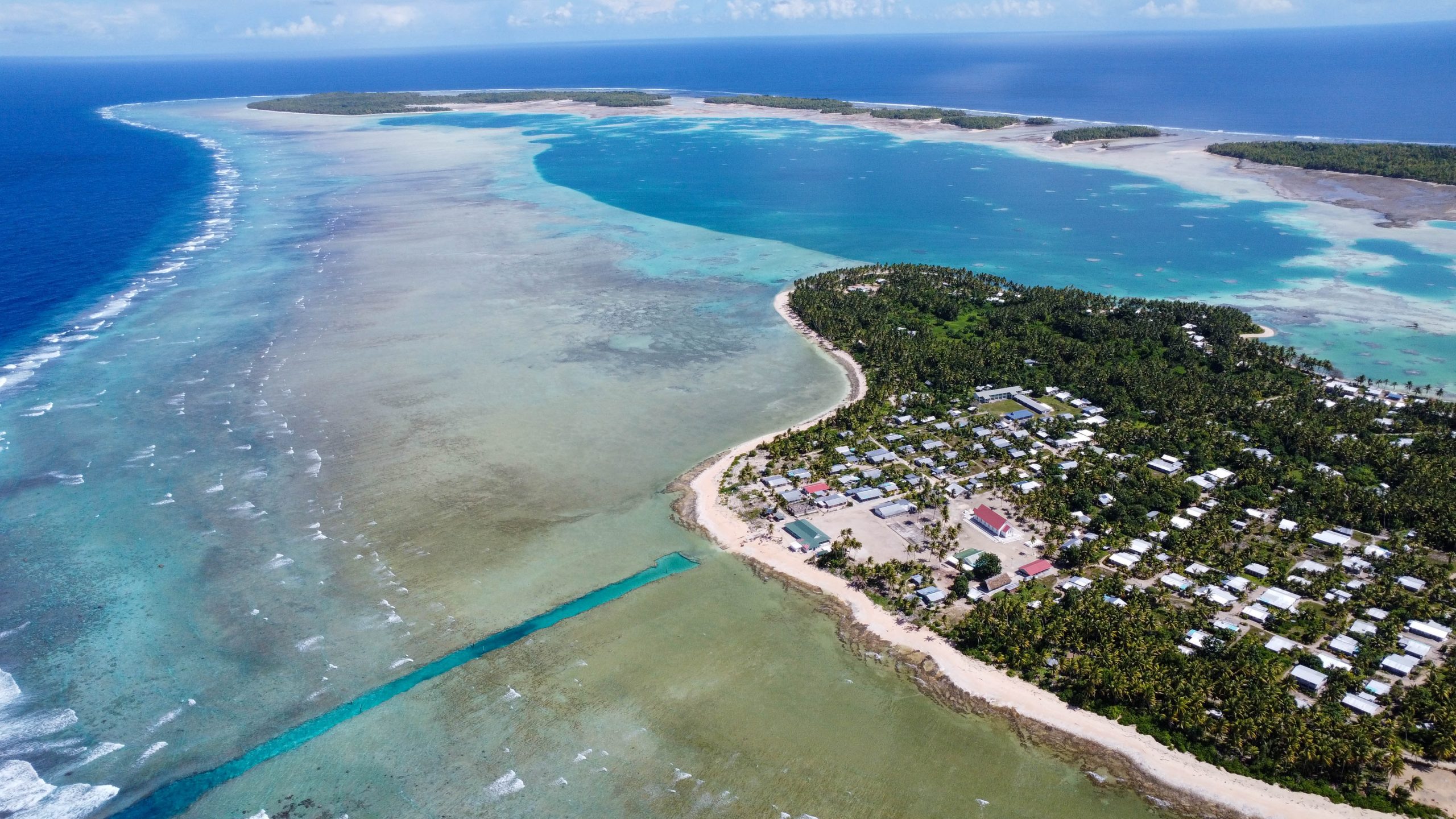The Pacific island country of Tuvalu has prohibited discrimination on the basis of sex and disability – provided it doesn’t conflict with traditional values – under a new constitution that went into effect this week.
Rights groups and United Nations agencies have previously expressed concerns about gender inequality and other forms of discrimination in Tuvalu. Amnesty International said on Wednesday that the constitutional amendments failed to protect people who might suffer discrimination on the basis of sexual orientation or gender identity.
The low-lying coral atoll nation of some 11,000 people is among the world’s smallest states and needs help from the international community to fund its long-term plans for land reclamation to survive higher sea levels.
The updated constitution, the product of nearly a decade of review, also included new language to reflect the threat to Tuvalu’s people and islands from human-driven climate change. It asserts that Tuvalu’s statehood will “remain in perpetuity in the future, notwithstanding the impacts of climate change or other causes resulting in loss to the physical territory.”
The constitution was approved by Tuvalu’s parliament last month and went into effect on Monday, which was also the anniversary of Tuvalu’s 1975 independence from the United Kingdom, Tuvaluan legislator and former foreign minister Simon Kofe said in statements on Twitter.
It had been unclear until recently whether Tuvalu would prohibit discrimination on the basis of sex. As of late last year, the committee responsible for reviewing the constitution had not reached agreement on that issue when it released its final report.
Kofe, known internationally for calling attention to how sea-level rises threatens Tuvalu’s existence, resigned as foreign minister in July to focus on a final public consultation for the constitution.
A 2022 UN report on gender equality in Tuvalu said women are largely excluded from decision making at the local and island level. Tuvalu government research also had found a high level of violence against women.
Nearly a quarter of men aged 35-49 years believed it was justifiable to beat their wife if she argued with them, according to a 2019 Tuvalu government study, while 26 percent of women aged 15-49 years had experienced sexual violence from a husband or partner.
At other levels, Tuvalu was doing significantly better than some other Pacific island countries. In 2021, nearly a third of organisations had a woman as the chair of their board of directors, according to a regional survey by the Asian Development Bank.
In the Pacific, Papua New Guinea is the worst country for women’s equality and second worst in the world after Yemen, according to a UN gender inequality index. Tuvalu isn’t part of the index.
Amnesty International’s Pacific researcher Kate Scheutze said lack of protections in Tuvalu’s new constitution against sexual orientation and gender identity discrimination were a “missed opportunity” for Tuvalu to catch up with international human rights law. About half a dozen Pacific island countries have laws against same-sex relations.
“I also have some concerns about the attempts to balance human rights and freedoms with culture and religion in the new constitution and whether it strikes the right balance in protecting human rights,” Scheutze told BenarNews.
“We’re only going to see over time what that looks like in practice and whether that results in greater recognition or support for individual human rights,” she said. “The question is do some of those provisos water down rights protection.”
Other changes in the constitution include recognition of the Falekaupule – councils of elders on Tuvalu’s islands – as the source of traditional authority. The document also places greater emphasis on Tuvaluan culture and values – described as consensus and cooperation – so they’re not outweighed by rights and freedoms.
Tuvalu is declared a Christian nation in the 2023 constitution.
“This constitution represents our commitment to political stability, good governance and the continuation of our rich Tuvaluan culture. A bridge to our past and gateway to our future,” Kofe said on Twitter.
SOURCE: BENAR NEWS/PACNEWS














